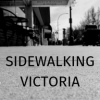When the Cascadia subduction zone rips it will be an earthquake several hundred kilometers long, it is not like the small localized single point earthquake.
The Cascadia megathrust earthquake of 1700 extended for 1000 kilometers.
Anchorage was located 120 kilometers from the Good Friday earthquake of 1964 and very severely damaged.
Santiago had significant damage in 2010 from an earthquake 250 kilometers away.
The 1960 Valdivia earthquake effected 400,000 square kilometers of Chile, 130,000 square kilometers severely which is an area four times the size of Vancouver Island.
**The 2011 Japanese earthquake severely effected an area about twice the size of Vancouver Island.
Scientists are only beginning to understand the Cascadia subduction zone and each year the understanding indicates it is more significant than previously thought.
The last Cascadia earthquake was in the top ten of all earthquakes in the last 500 years. potentially in the top three.
But I'm still not convinced that a person in one point on this fault is all that vulnerable. Yes, some point along this fault is going to get it, but what chance do WE have, or a person in Queen Charlottes? **You can put hundreds of Vancouver Islands into the fault line from Mexico up the coast to Alaska.
And that Cascadia quake of 1700, well a 1000km is nothing. You could take the severely affected area of that quake, even if it was 1000kmx1000km and place lots of those over the fault line. But I dobt that quake have severe impacts 1000km out each way. So say it was sever 500km out. You can place lots of 500kmx500km blots over Mexico to Alaska.


















